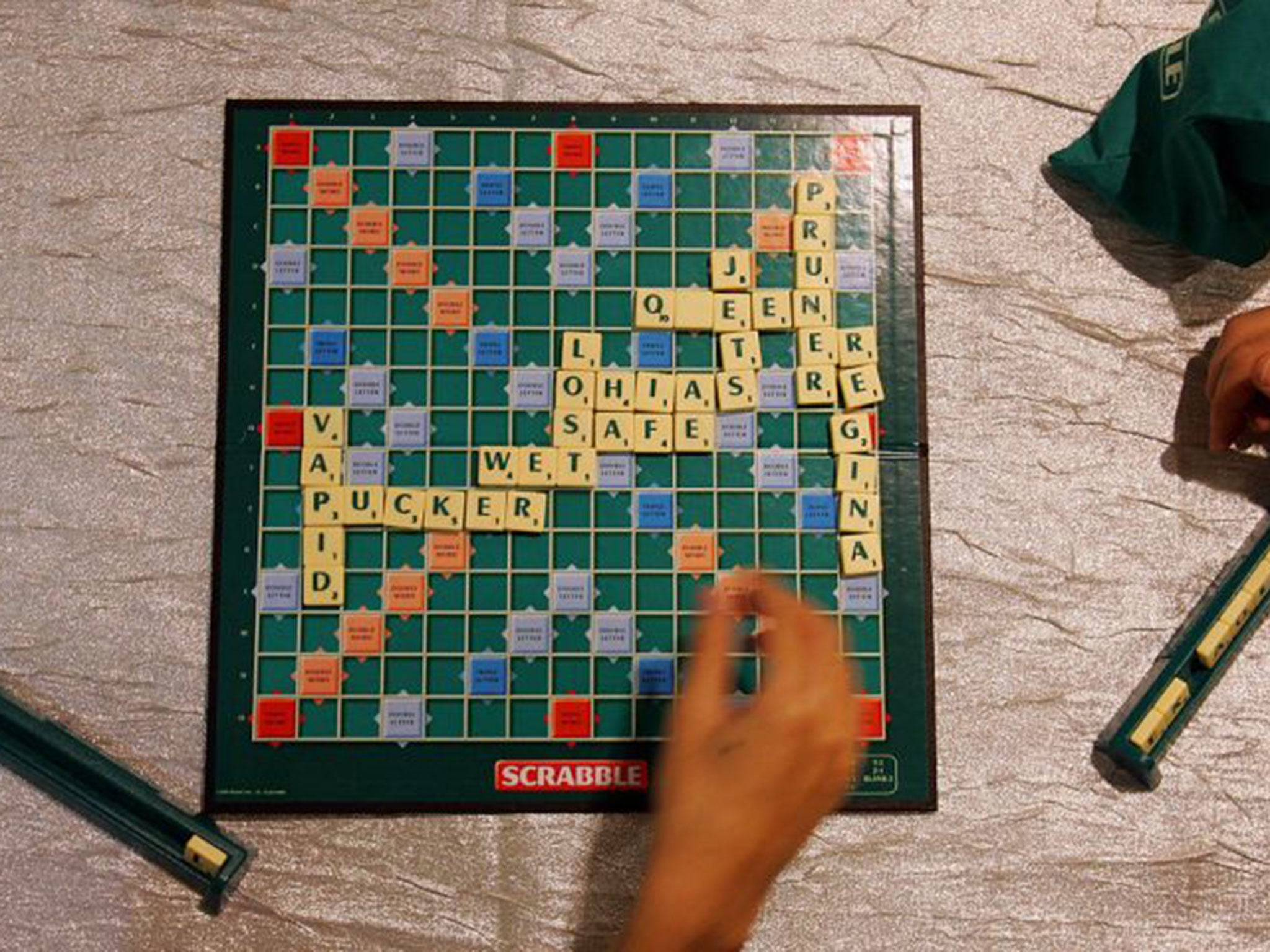Scrabble expert Allan Simmons: 'We're not adding words like 'chillax' and 'po' to the players' dictionary for the sake of it'
Bromance, buzzkill, hashtag and frenemy also appear on a list of 5,000 additions to the new Official Scrabble Player's Dictionary, published by American dictionary giant Merriam-Webster. Here, Allan Simmons explains what the point is

Your support helps us to tell the story
From reproductive rights to climate change to Big Tech, The Independent is on the ground when the story is developing. Whether it's investigating the financials of Elon Musk's pro-Trump PAC or producing our latest documentary, 'The A Word', which shines a light on the American women fighting for reproductive rights, we know how important it is to parse out the facts from the messaging.
At such a critical moment in US history, we need reporters on the ground. Your donation allows us to keep sending journalists to speak to both sides of the story.
The Independent is trusted by Americans across the entire political spectrum. And unlike many other quality news outlets, we choose not to lock Americans out of our reporting and analysis with paywalls. We believe quality journalism should be available to everyone, paid for by those who can afford it.
Your support makes all the difference.Any British Scrabble nuts in a lather about the addition of modern new words to the game's dictionary need to chillax (17 points) with a mojito (15) or something, because, linguistic snobbery aside, the words, as well as hundreds more, will not be acceptable on boards outside North America until next year.
Bromance, buzzkill, hashtag and frenemy also appear on a list of 5,000 additions to the new Official Scrabble Player's Dictionary, published by American dictionary giant Merriam-Webster. But outside the US and Canada, Mattel rather than Hasbro owns the Scrabble trademark, and Collins keeps the official dictionary.
So no chillaxing here yet. But, it won't be long, because Collins is also working with Mattel and top Scrabble authorities to update its list, which routinely incorporates new US words, except those that already appear.
Complicated? Allan Simmons can help. The runner-up in the last UK championships (which he won in 2008) is also a member of the dictionary committee for the World English Language Scrabble Players Association. It receives early drafts of new editions from Collins and clarifies any doubt about, for example, plurals or adverbs. But the words are no different.
"Sometimes you think the dictionary editors put new words in for marketing purposes but we don't use anything just for the sake of Scrabble," Simmons, 56, explains from his home in the Scottish borders. "People say, 'this word doesn't mean anything, it's only there for Scrabble', but that's not true. We only use words from a respected dictionary source."
Two-letter words can prove particularly controversial, partly because they can produce big scores by linking longer words in parallel. The new, US list includes four of these: te, da, gi and po (a po is a chamber pot, apparently). But, Simmons points out, all four have appeared among the 124 two-letter words used outside North America for decades (they also include do re mi fa so la ti do). "In the US, this is really exciting because these words will enable so much more open play," he says. "They will have the most impact."
Words such as chillax, a portmanteau once cringingly associated with David Cameron, will be less useful, Simmons says, because they are less likely to crop up. "But you could add, say, 'ax' to 'chill'." He is most excited about "coqui", a small arboreal frog. "That stuck out right away. I can imagine a lot of people using it to get rid of a c and q together. No other word allows you to do that with just vowels."
When dictionaries are updated sometimes with thousands of words, it's also the job of Simmons and his team to create a "conversion kit" of the most useful words, which competitive players will devour and memorise. He accepts that not all of them are motivated by a love of language, but, he says: "I like to know what words mean." He also enjoys their aesthetic qualities, singling out "pyengadu", an acacia-like tree, as his favourite.
His highest-scoring word? "Opaquing" – the act of making something opaque. "I played it years ago across two triples with the Q on the double." Simmons, who was made redundant as an IT project manager in 2001, tots up the score in his head, taking into account a blank tile and the 50-point bonus for using all tiles. "That would have got me 312 points," he says.
The player is also chillaxed about the inclusion of slang and "youth" words. "If you look at words that are common now, many of them would have been the youth words of their day, or portmanteau words. We've just forgotten what they are," he says. "The question is how many of these will last and have a life of their own."
Simmons is now a full-time consultant on the game and sets Scrabble puzzles for several newspapers. He has written books, too, and played at a high level for more than 35 years. How does he react when friends suggest a post-dinner round? "Once you've played at the top level, it's hard to switch to playing for fun," he says. "I'm happy to do it if people ask but they're not likely to because they know they would lose."
Join our commenting forum
Join thought-provoking conversations, follow other Independent readers and see their replies
Comments